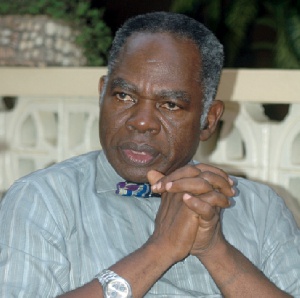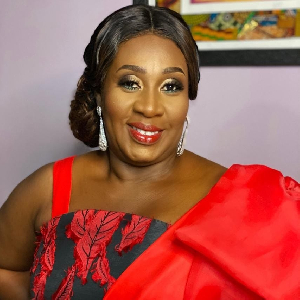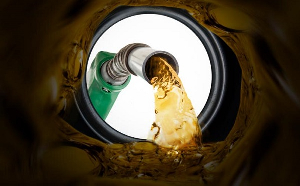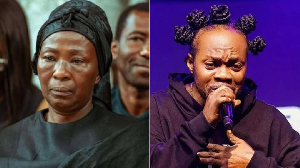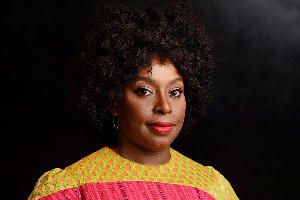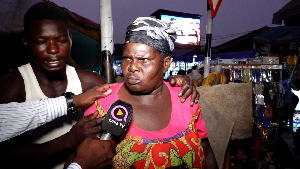By Kwame Okoampa-Ahoofe, Jr., Ph.D.
The Presidential Candidate of the Limann-founded People’s National Convention (PNC), Dr. Edward Nasigri Mahama, is dead-on-target when he asserts that “Nobody can either join or support the National Democratic Congress [NDC] without becoming a corrupt leader” (See “You Cannot be with the NDC if you are not Corrupt – Edward Mahama” Rainbowradioonline.com / Ghanaweb.com 9/7/16).
This may very well be indisputable; but the fact of the matter is that all the Left-leaning political parties, like the Rawlings-minted National Democratic Congress, including the PNC, of course, the rump-Convention People’s (r-CPP) and the so-called Progressive People’s Party (PPP), have their sources of inspiration from the Kwame Nkrumah-led seminal Convention People’s Party (CPP), the prime-architect of bribery and corruption in postcolonial Ghana.
What is more, unless Dr. Mahama is below 50 years old, he ought to be able to vividly recall the sort of rank carryover corruption and gross administrative incompetence that characterized the Limann-led People’s National Party (PNP) and facilitated the massive popular support that greeted Chairman Jerry John Rawlings’ so-called Provisional National Defense Council (PNDC) faux-revolutionary dictatorship on December 31, 1981.
As a person, Dr. Hilla (Babinin) Limann, a hitherto career diplomat accidentally thrust into the presidential limelight by his brother-in-law, Mr. Imoro Egala, was quite a decent and progressive leader. But as an administrator, the University of London- and Sorbonne-trained political scientist and constitutionalist proved himself to be deeply out of his depth and league.
But even more important ought to be underscored the fact that the national political emergence of the Gwollu native, of the Sissala district of present-day Upper-West Region, was heavily tinged with nepotism of the sort described above.
And so, really, Dr. Mahama cannot conveniently pretend as if the founding father of the People’s National Convention could be dispassionately envisaged as a paragon of democratic leadership in postcolonial Ghana. Like President Nkrumah, before him, and President John Dramani Mahama, after him, Dr. Limann would pack his cabinet and the upper-echelons of his government with Ghanaians of northern descent, as well as moral and political reprobates of all ethnicities from the pathologically corrupt Nkrumah era, such as Alhaji Imoro Egala, the man whose leadership disqualification, for acts of political criminality during the proto-CPP’s tenure, had prompted him to handpick his brother-in-law for the presidency, and Nana Okutwere Bekoe.
Legend has it that at the time of his selection to spearhead the people’s National Party into the 1979 presidential election, Dr. Limann had been preparing to run as a parliamentary candidate on the ticket of the Victor Owusu-led Popular-Front Party (PFP). He would quickly and opportunistically switch political and ideological allegiance. This is not the sort of leader whose moral ideals Dr. Mahama ought to be deafeningly and pontifically preaching to the Ghanaian electorate.
In other words, even if we all decide to agree that President Limann was a perspicuous and progressive leader, it still cannot be gainsaid that the PNP leader was not as principled a leader as his most ardent disciples would have the rest of us believe, even if we also have to promptly acknowledge the fact that the undeniably urbane Dr. Limann was far and away a better political alternative to the notoriously imperious and implacably and insufferably divisive Mr. Victor Owusu.
If Dr. Mahama wants to refresh his memory about the sort of rank corruption that characterized the entire 15-year tenure of Mr. Kwame Nkrumah, he had better read the Jibowu Commission’s Report and such other authoritative treatises on the period, such as Peter Omari’s Kwame Nkrumah: The Anatomy of an African Dictatorship, with the very insightful “Foreword” written by the immortalized Justice Nii Armaah Ollennu, a sometime close associate of Nkrumah.
It also goes without saying that the Kufuor-led government of the New Patriotic Party (NPP) can never be begrudged the yeomanly credit of having created the most robust and progressive economy in postcolonial Ghanaian history.
Consequently, Dr. Mahama’s rather lame and facile attempt to lump the dismal administrative record of the Rawlings-minted National Democratic Congress with that of the Danquah-Busia-Dombo-inspired New Patriotic Party could not be more insulting.
Indeed, rather than vacuously presume to cavalierly malign the astute and visionary leadership of President John Agyekum-Kufuor, Dr. Mahama would stand himself a better chance at the presidency by pragmatically explaining to Ghanaians precisely how he intends to lift them up from the Stygian socioeconomic mess in which they have been plunged for some two decades by the politically regressive and violent leadership of the siege-minded National Democratic Congress.
Opinions of Thursday, 15 September 2016
Columnist: Okoampa-Ahoofe, Kwame

